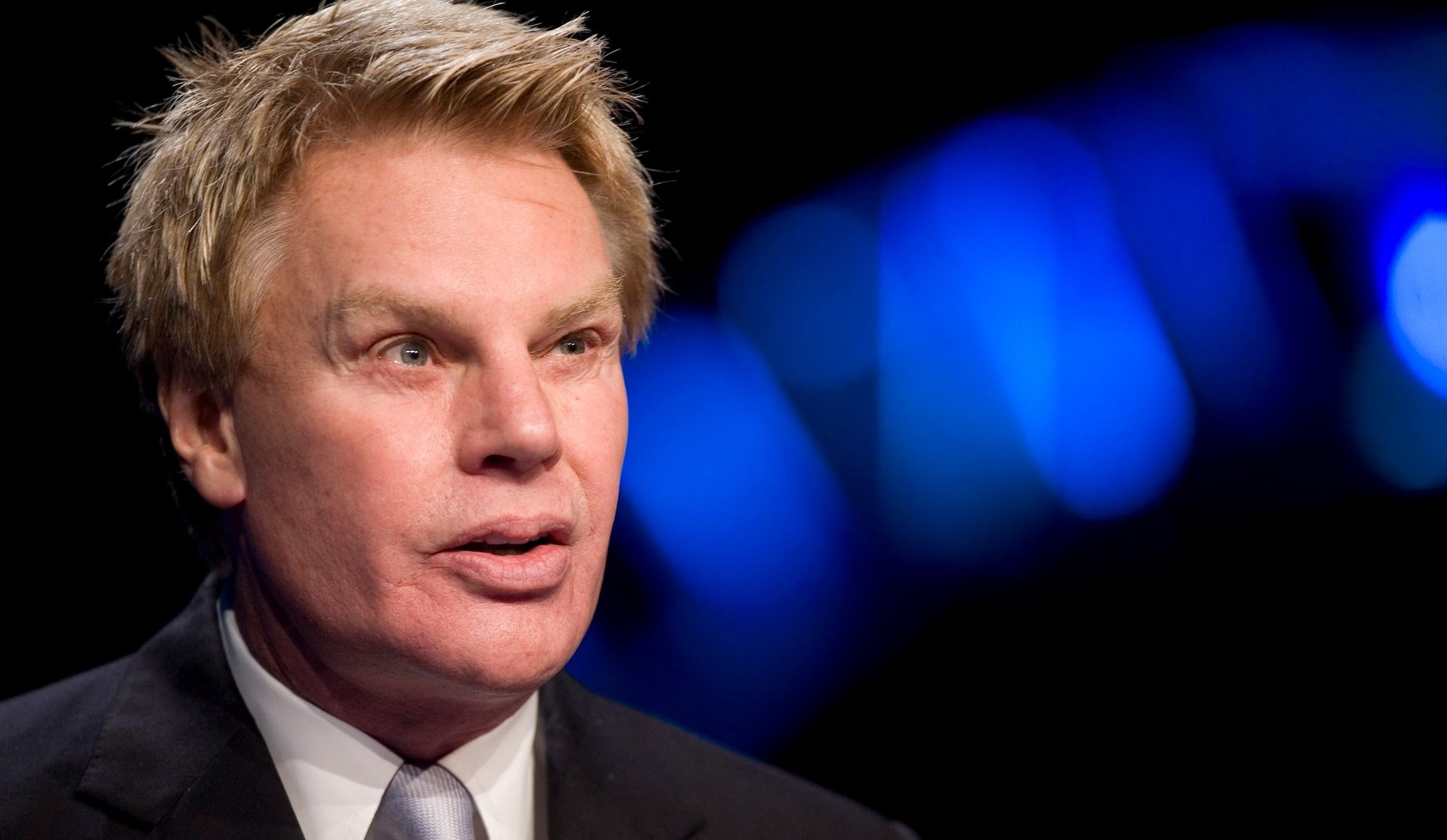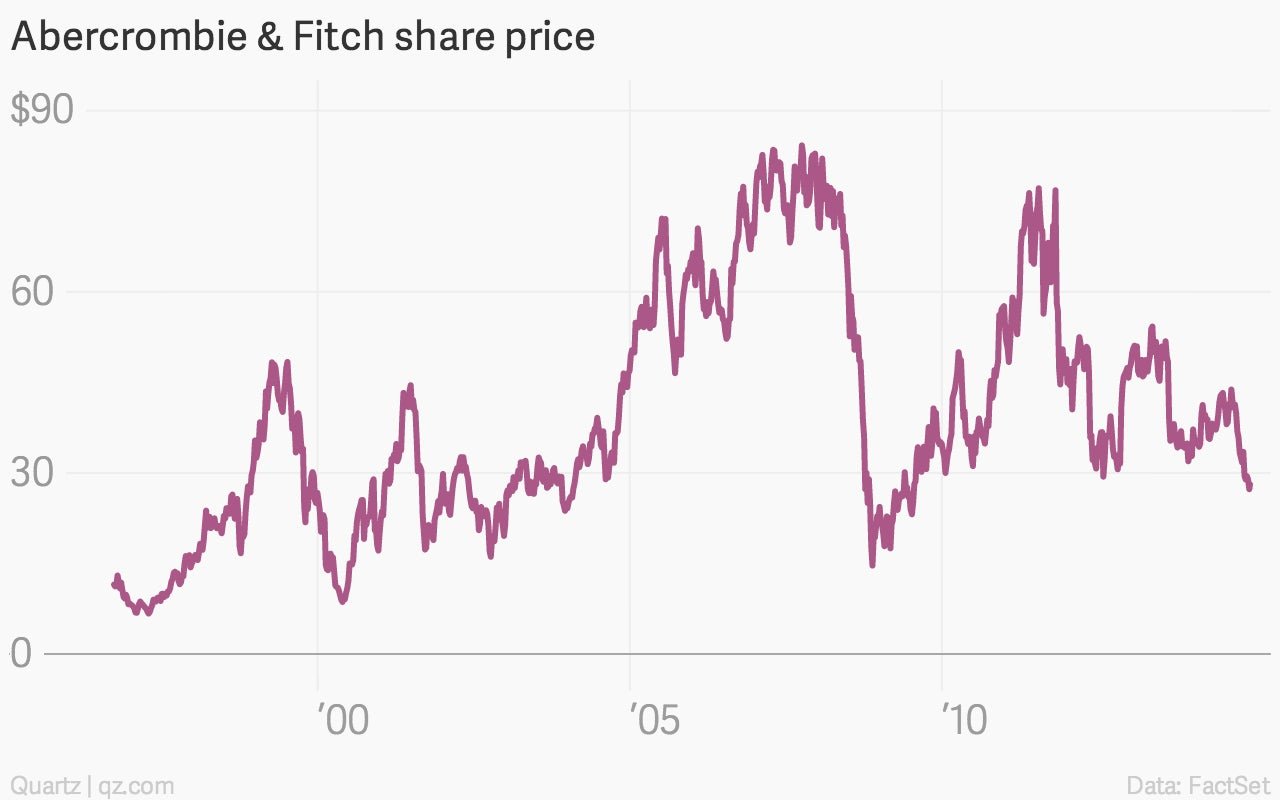The deeply controversial CEO of Abercrombie & Fitch just stepped down
Mike Jeffries, the longtime CEO of teen clothing retailer Abercrombie & Fitch, stepped down effective today without a successor. Jeffries weathered controversies that may have sunk many other CEOs, and defined the company’s previously successful aesthetic, but he couldn’t weather changing tastes and a reversal in the stock performance:


Mike Jeffries, the longtime CEO of teen clothing retailer Abercrombie & Fitch, stepped down effective today without a successor. Jeffries weathered controversies that may have sunk many other CEOs, and defined the company’s previously successful aesthetic, but he couldn’t weather changing tastes and a reversal in the stock performance:

The company’s share price is up more than 6% on the news, despite there being no clear succession plan.
Jeffries’ longtime strategy of racy advertising, high prices, and omnipresent logos led to some of the oddest stories in business. The company had a bizarrely comprehensive dress and personal conduct code, a “look policy” outlined in documents obtained by Buzzfeed’s Sapna Maheshwari. Dictates included bans on facial hair, and an elaborate guide on what kind of highlights and hairstyles are acceptable. The company is also known for occasionally putting shirtless models in front of its stores. Several employees have sued over the look policy.
Anyone who’s ever been in the stores will know about the omnipresent smell of the company’s signature perfume. Former employees say they were required to spritz the merchandize several times a day. The company recently pledged to reduce the cologne’s presence by 25%.
And then there’s Jeffries’ personal conduct and perks.
A memo detailed his very particular requirements for the actors and models that staffed his corporate jet (paid for by the company). It dictated that the models wear a uniform including an Abercrombie polo shirt (collar flipped) and jeans, boxer briefs, flip flops, and the company’s perfume. Jeffries’ dogs had individual seating arrangements.
Jeffries’ longtime partner, Matthew Smith, reportedly had outsize influence at the company despite the fact that he isn’t an employee. This allegedly included his frequent presence at corporate meetings, critiques of sloppy employee desks, and input on important strategic decisions. A shareholder lawsuit alleging poor corporate governance, and excessive spending on helicopter rides and hotels, also included complaints about Smith’s influence.
Jeffries managed to provoke outrage with his statements. In a 2006 interview with Salon, he defined the company’s approach in a way that would come to haunt him:
In every school there are the cool and popular kids, and then there are the not-so-cool kids. Candidly, we go after the cool kids. We go after the attractive all-American kid with a great attitude and a lot of friends. A lot of people don’t belong [in our clothes], and they can’t belong. Are we exclusionary? Absolutely. Those companies that are in trouble are trying to target everybody: young, old, fat, skinny. But then you become totally vanilla. You don’t alienate anybody, but you don’t excite anybody, either.